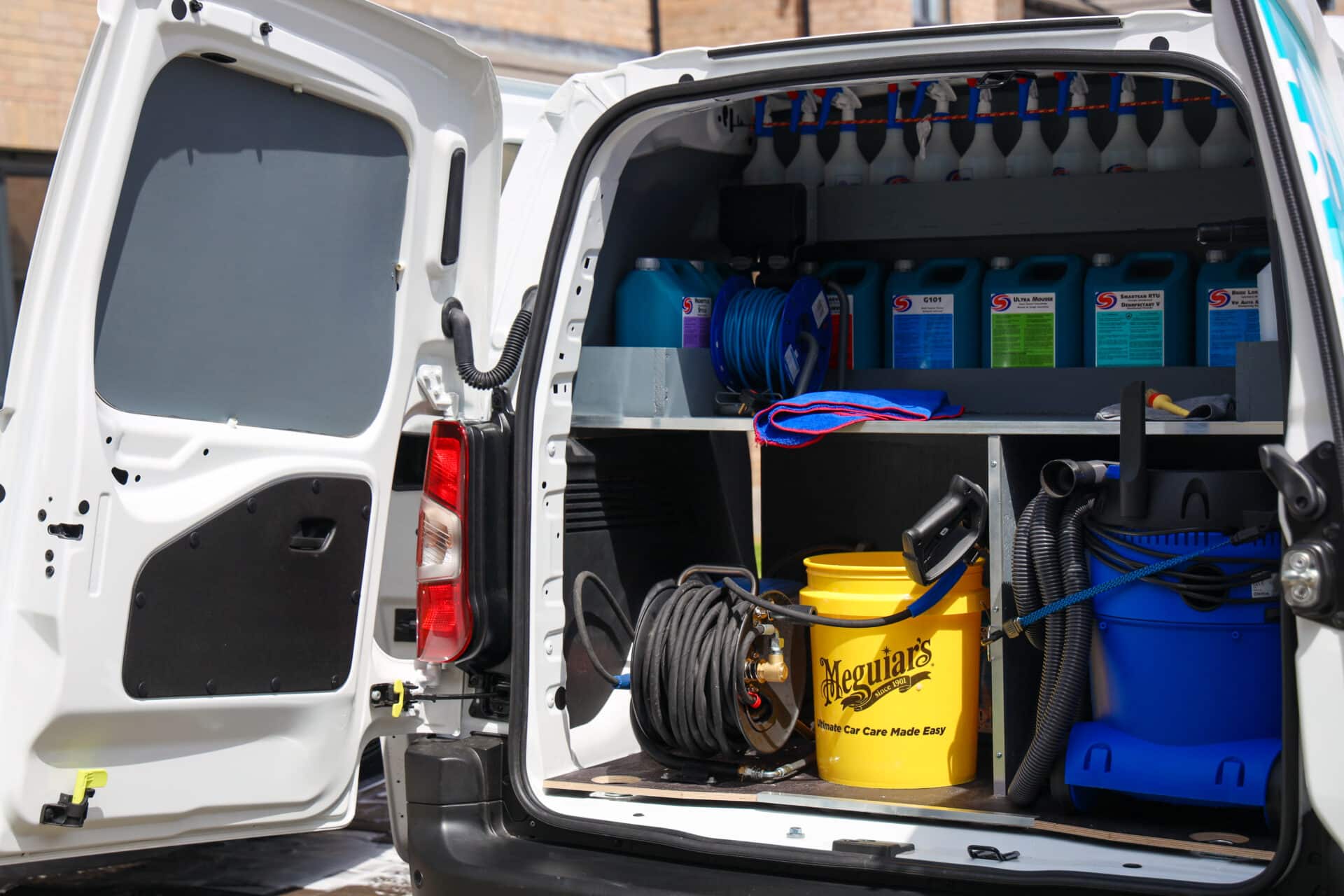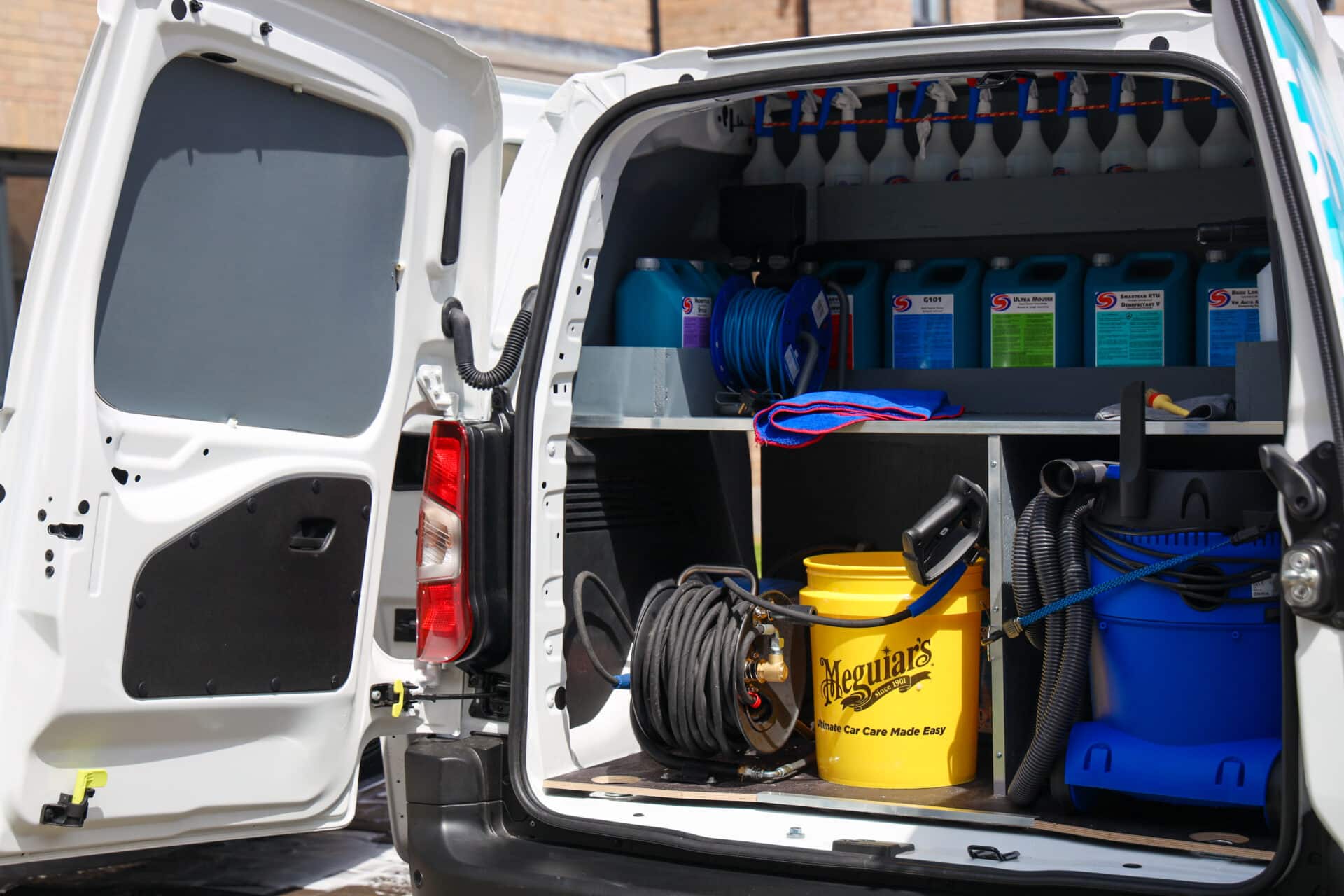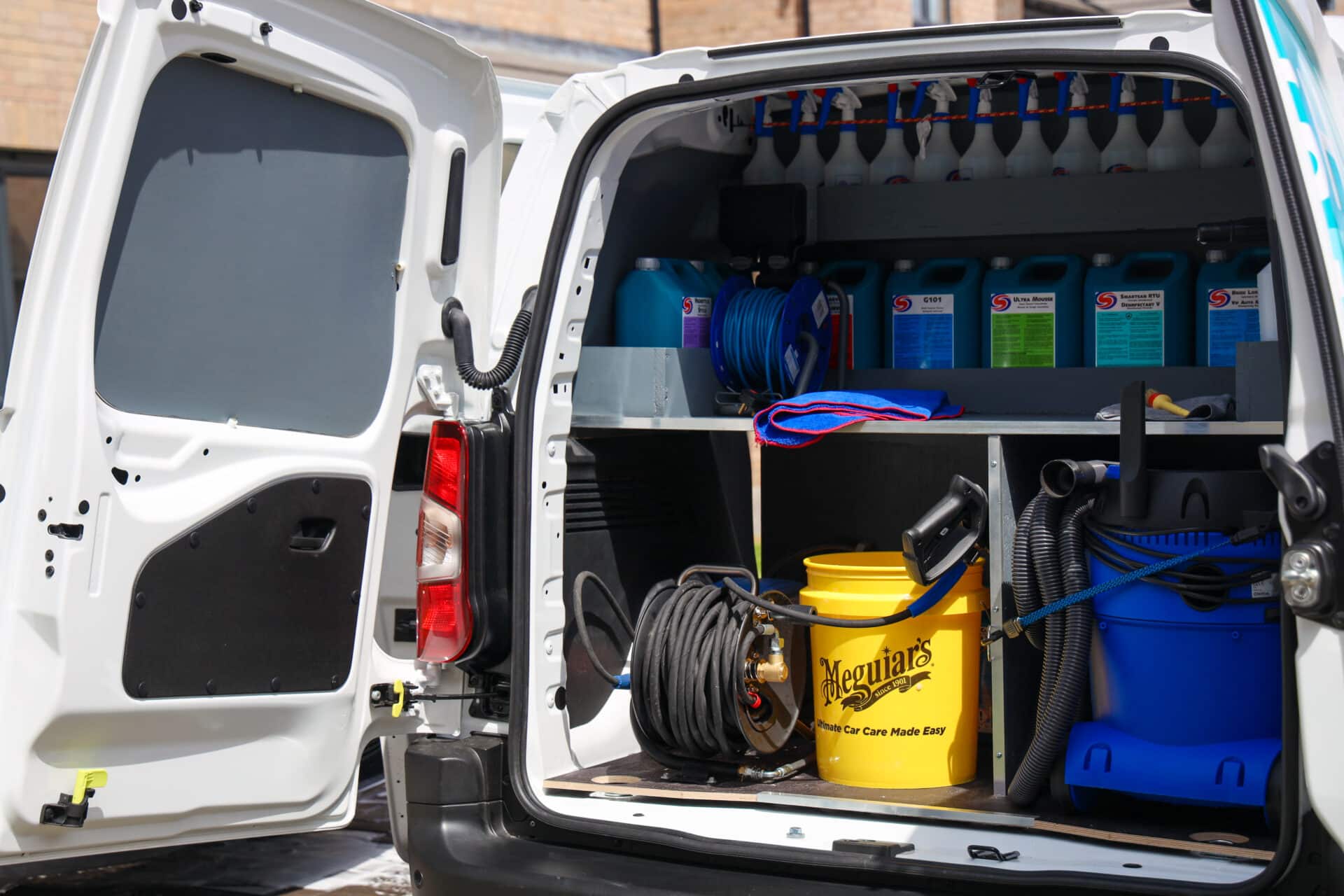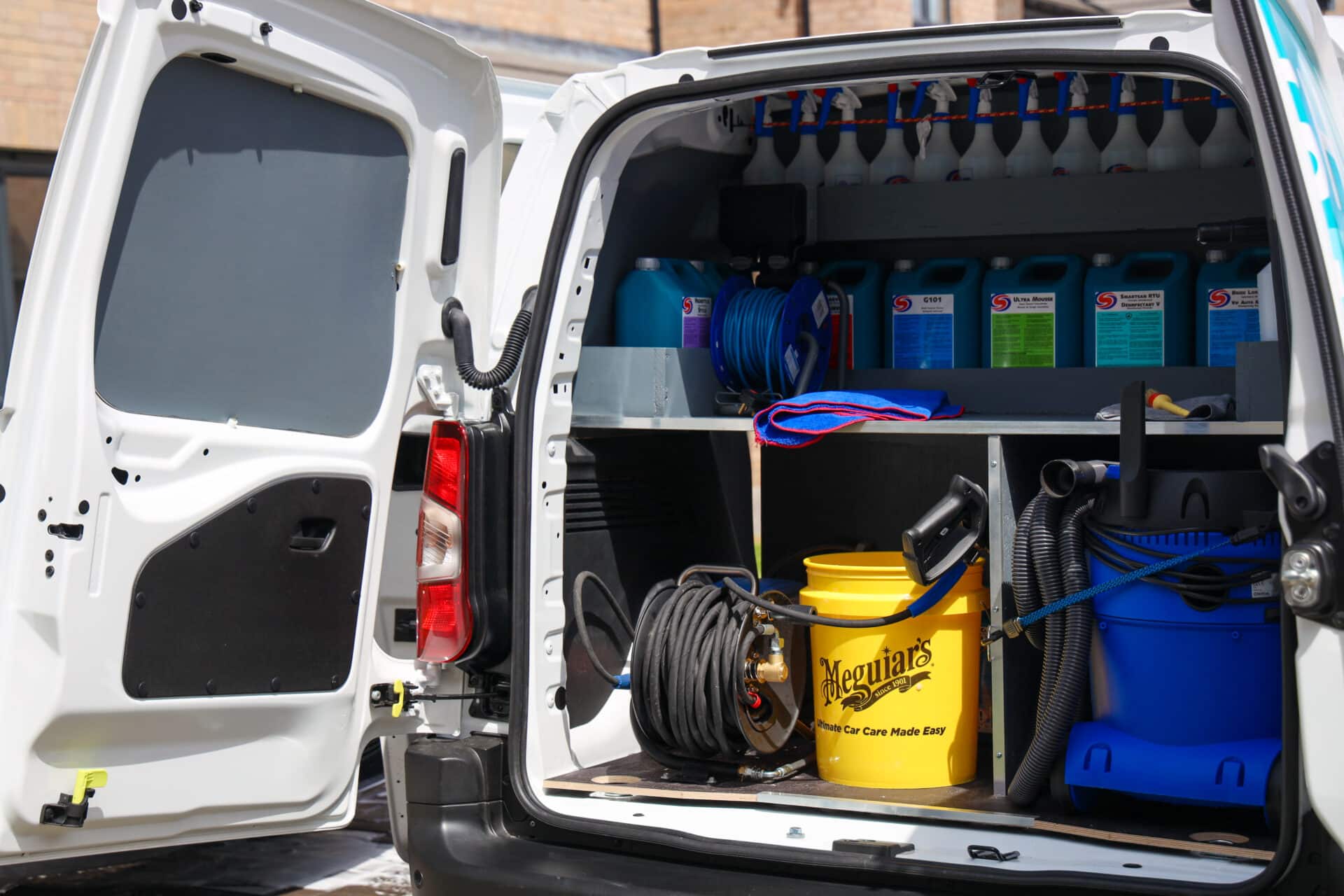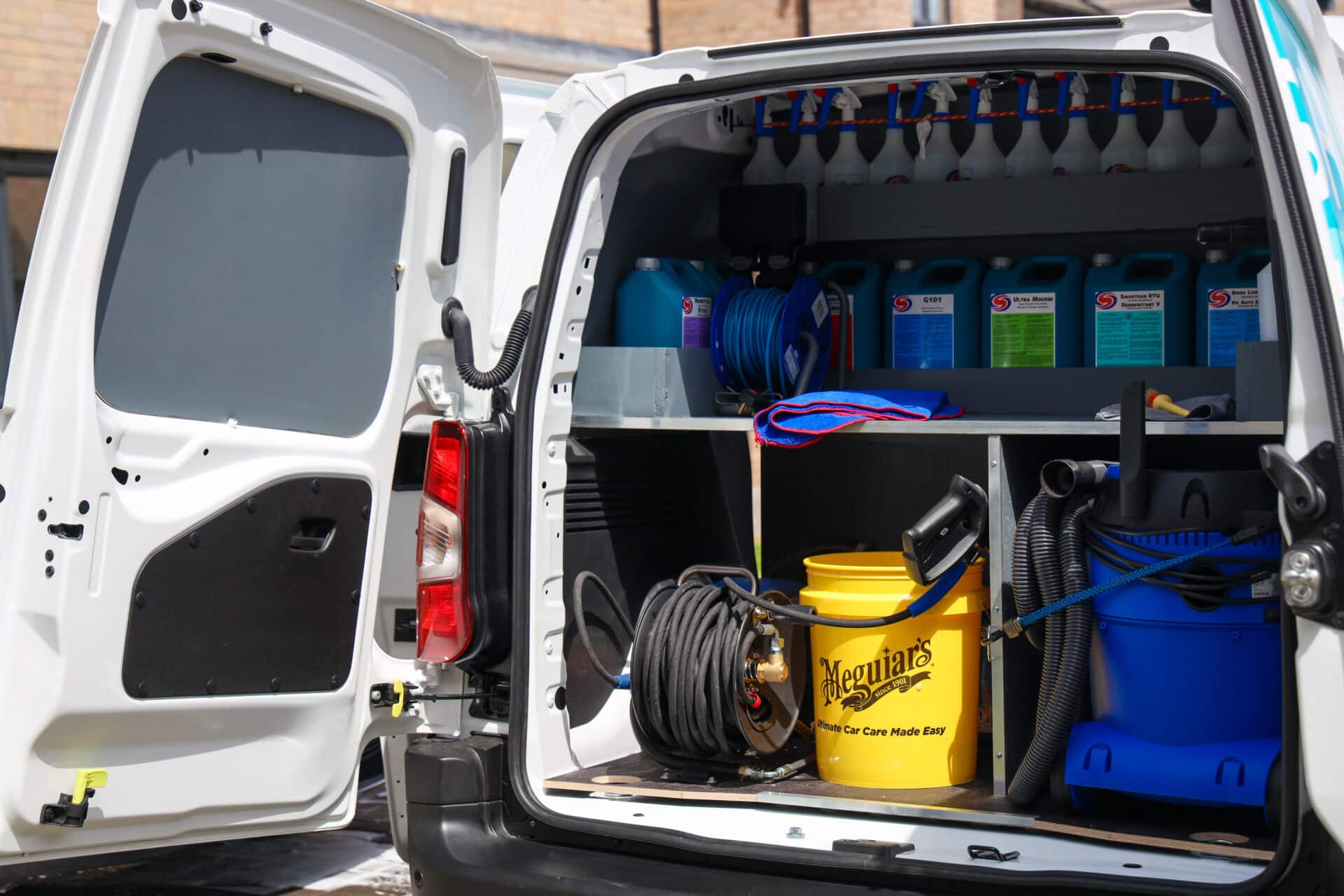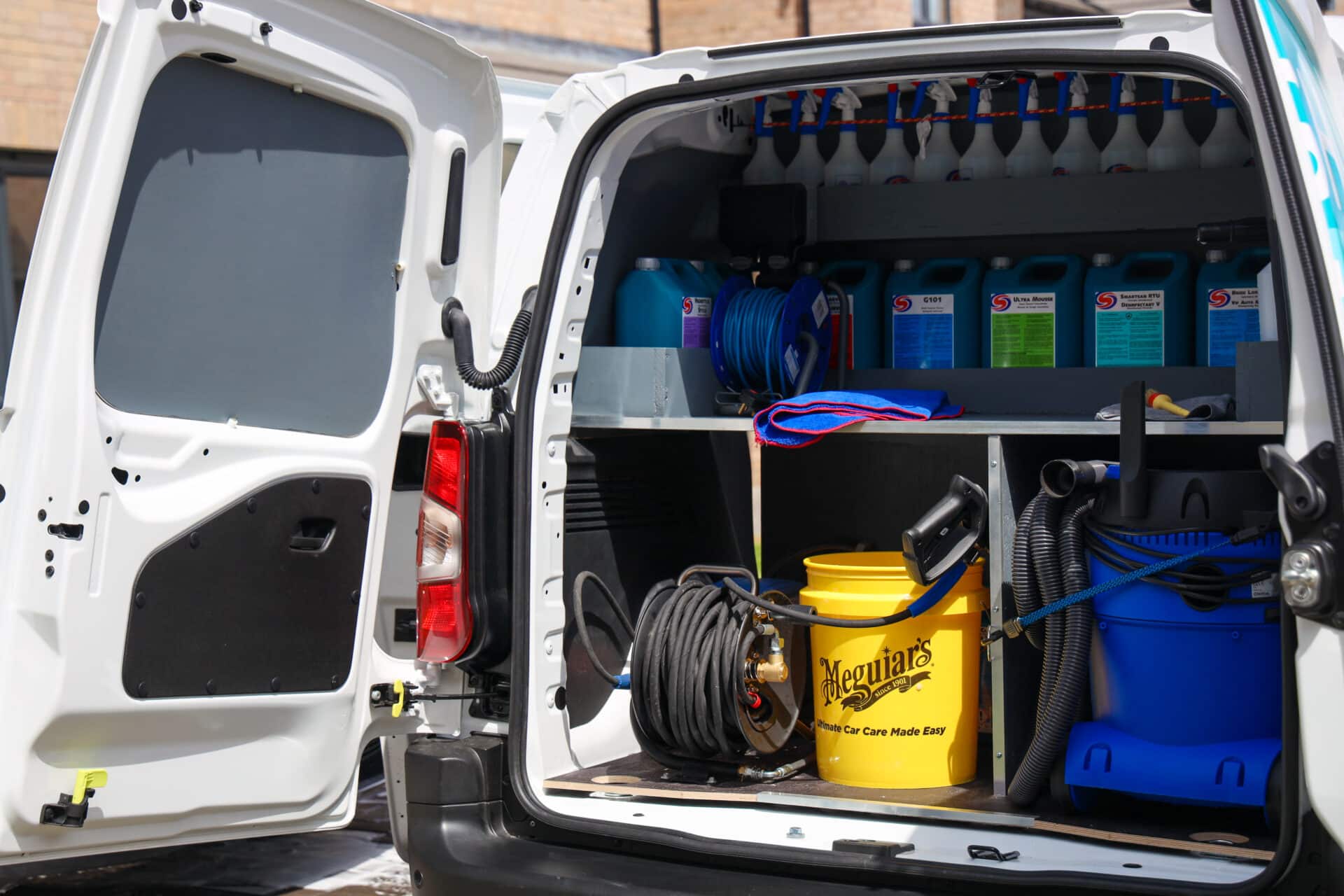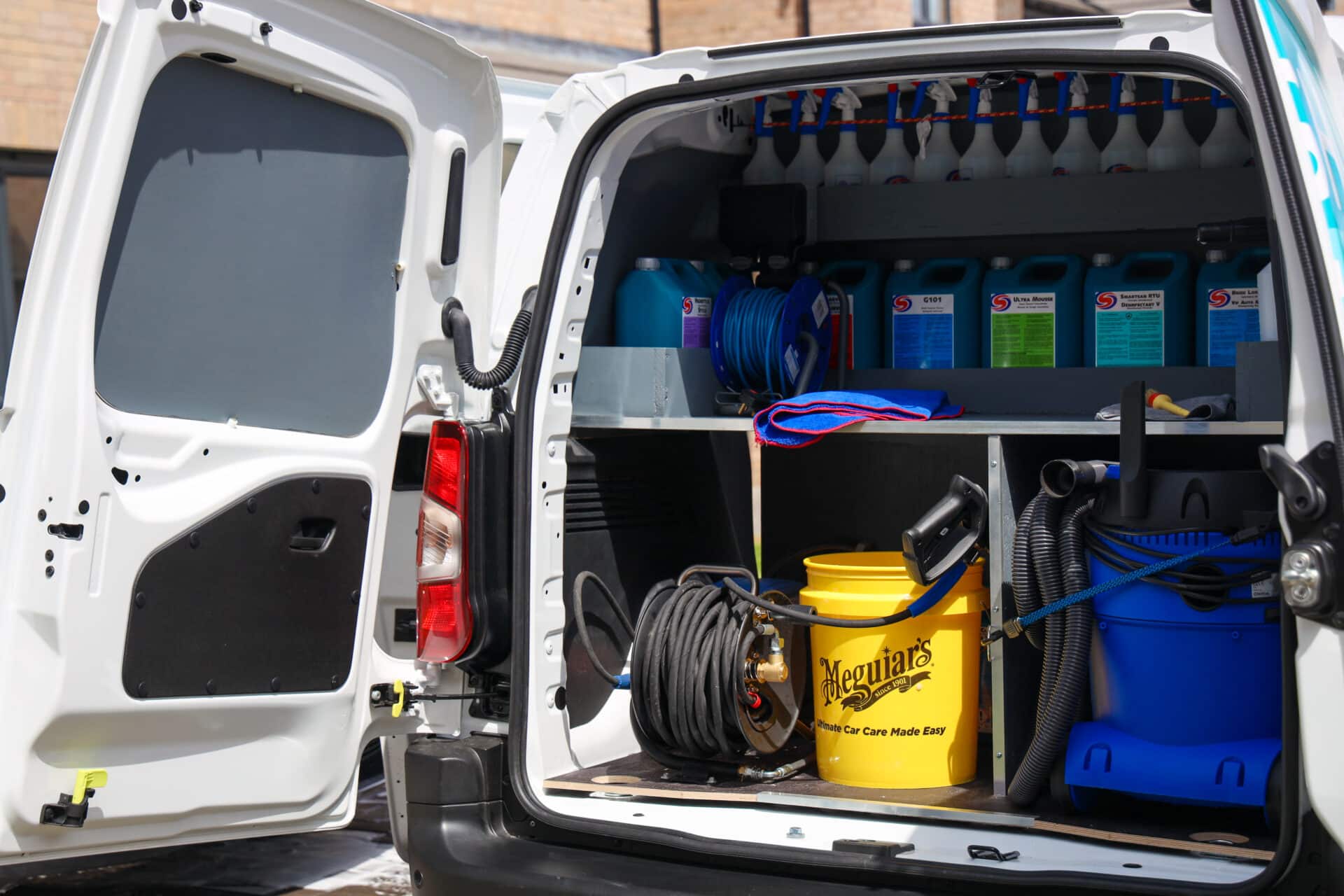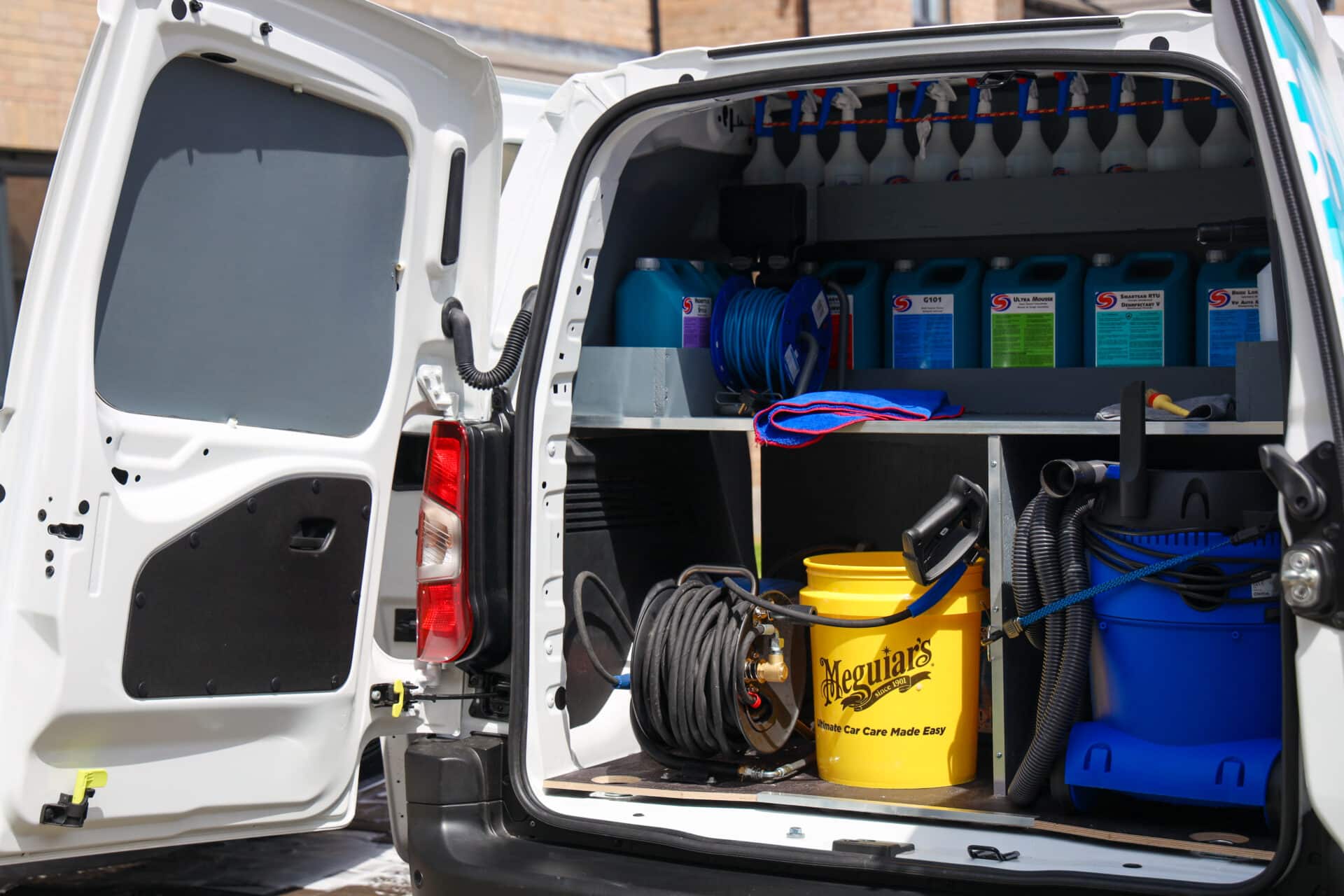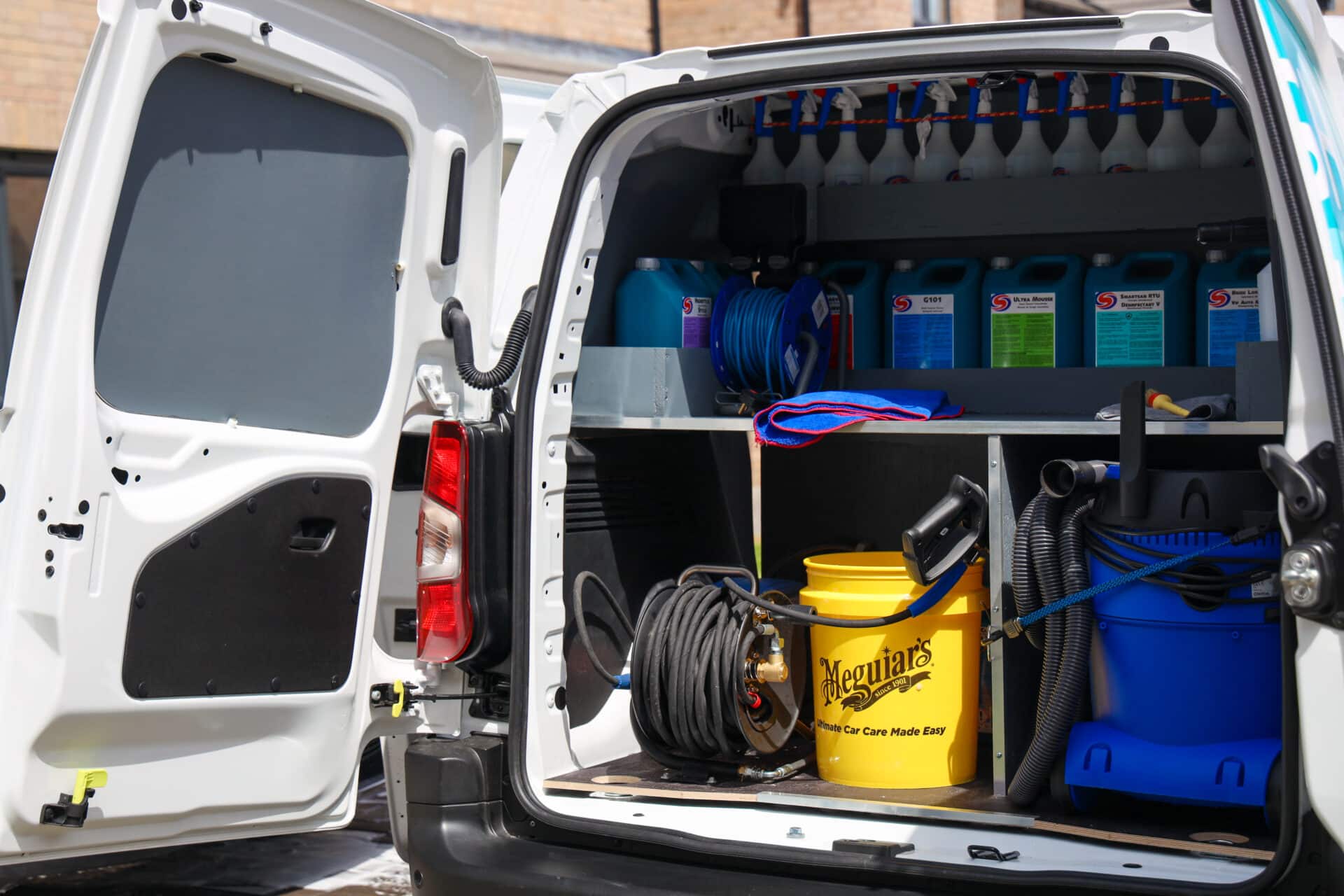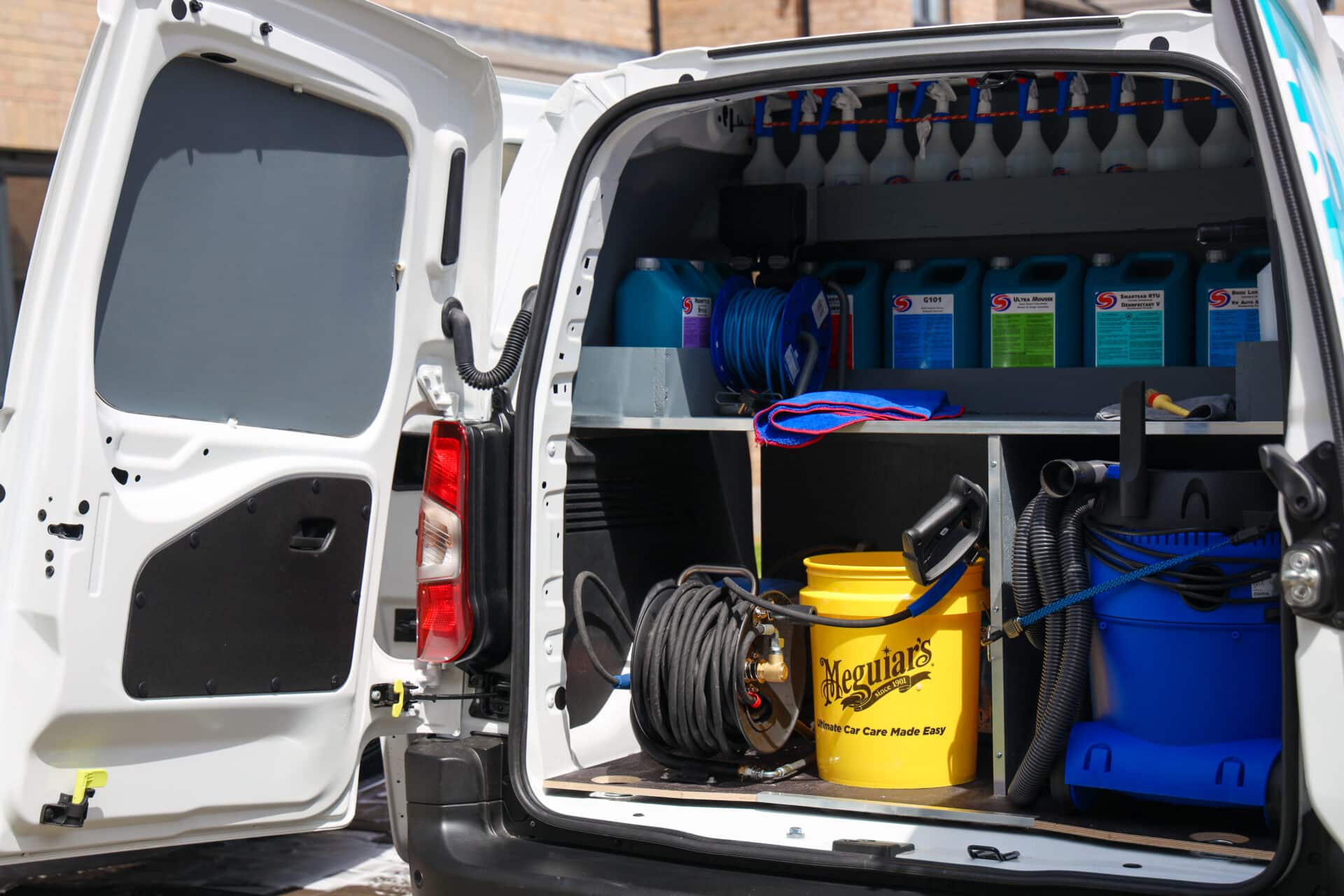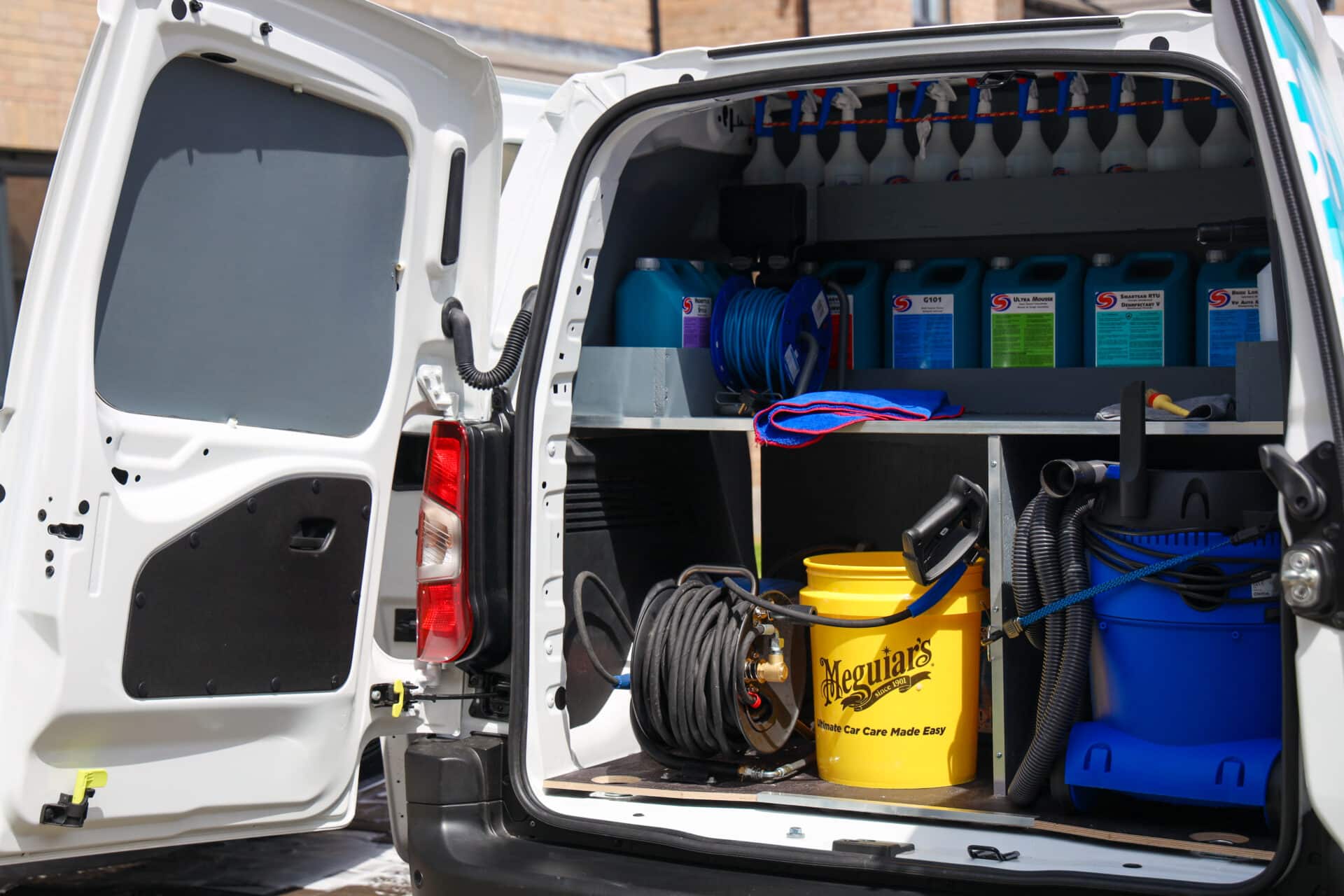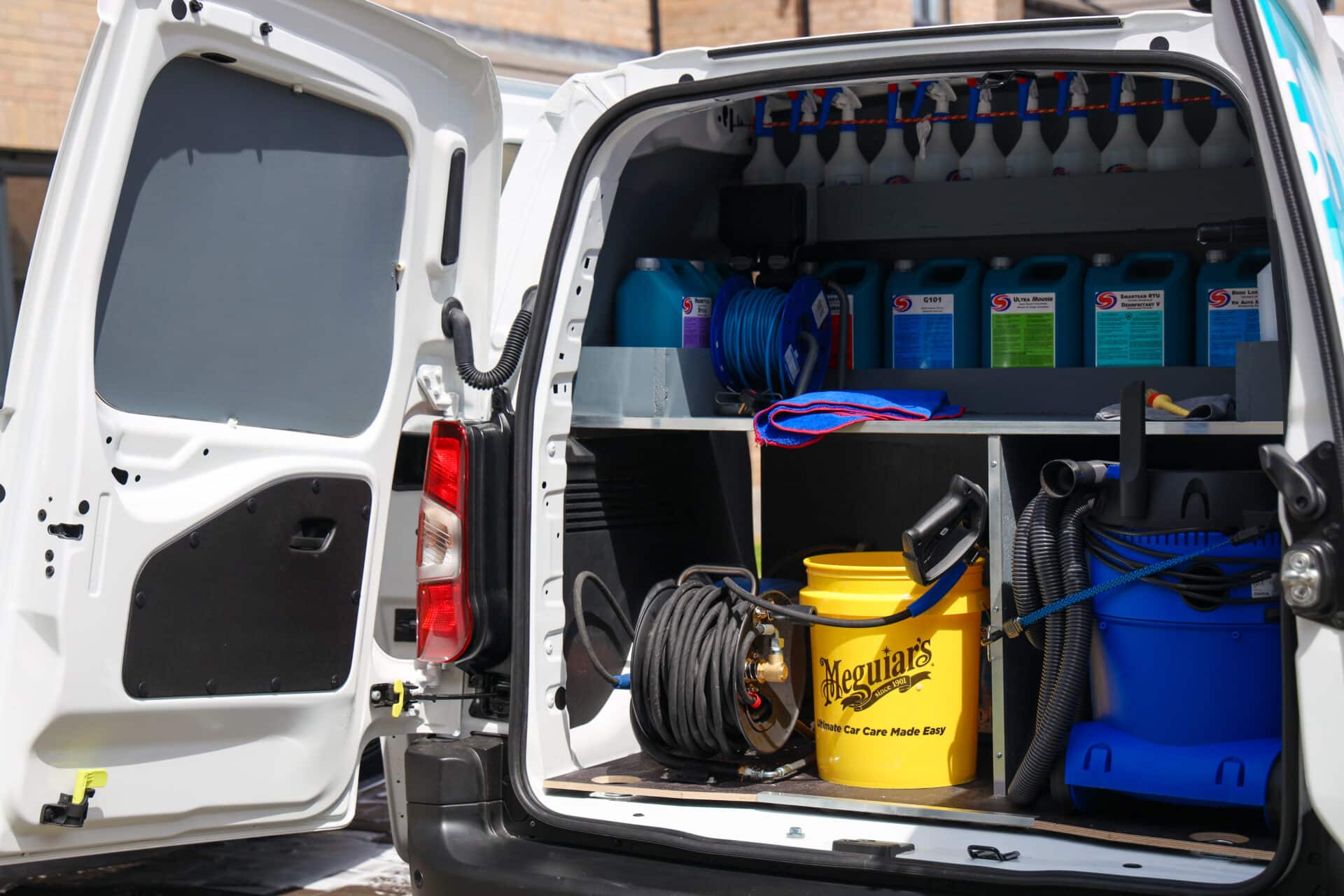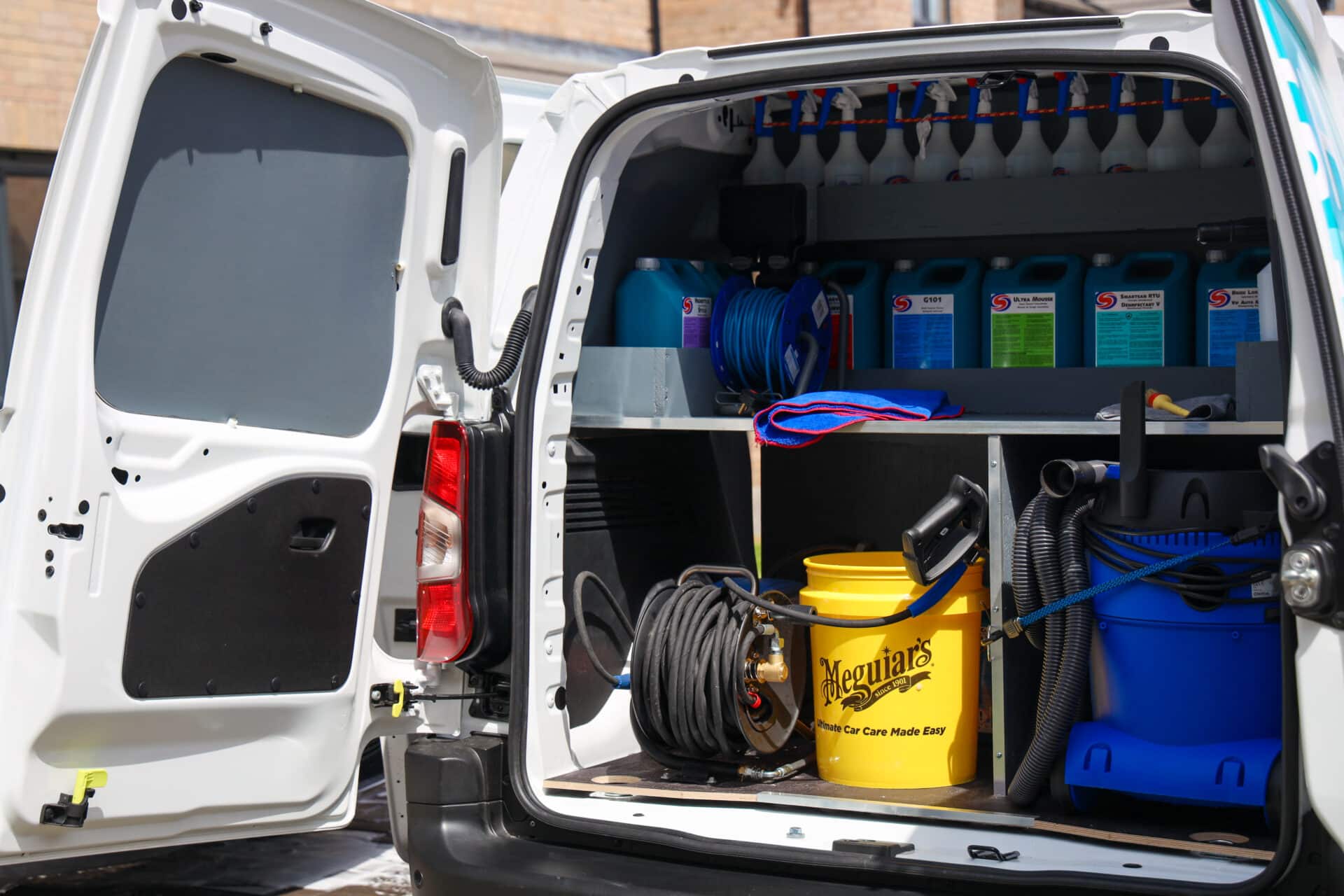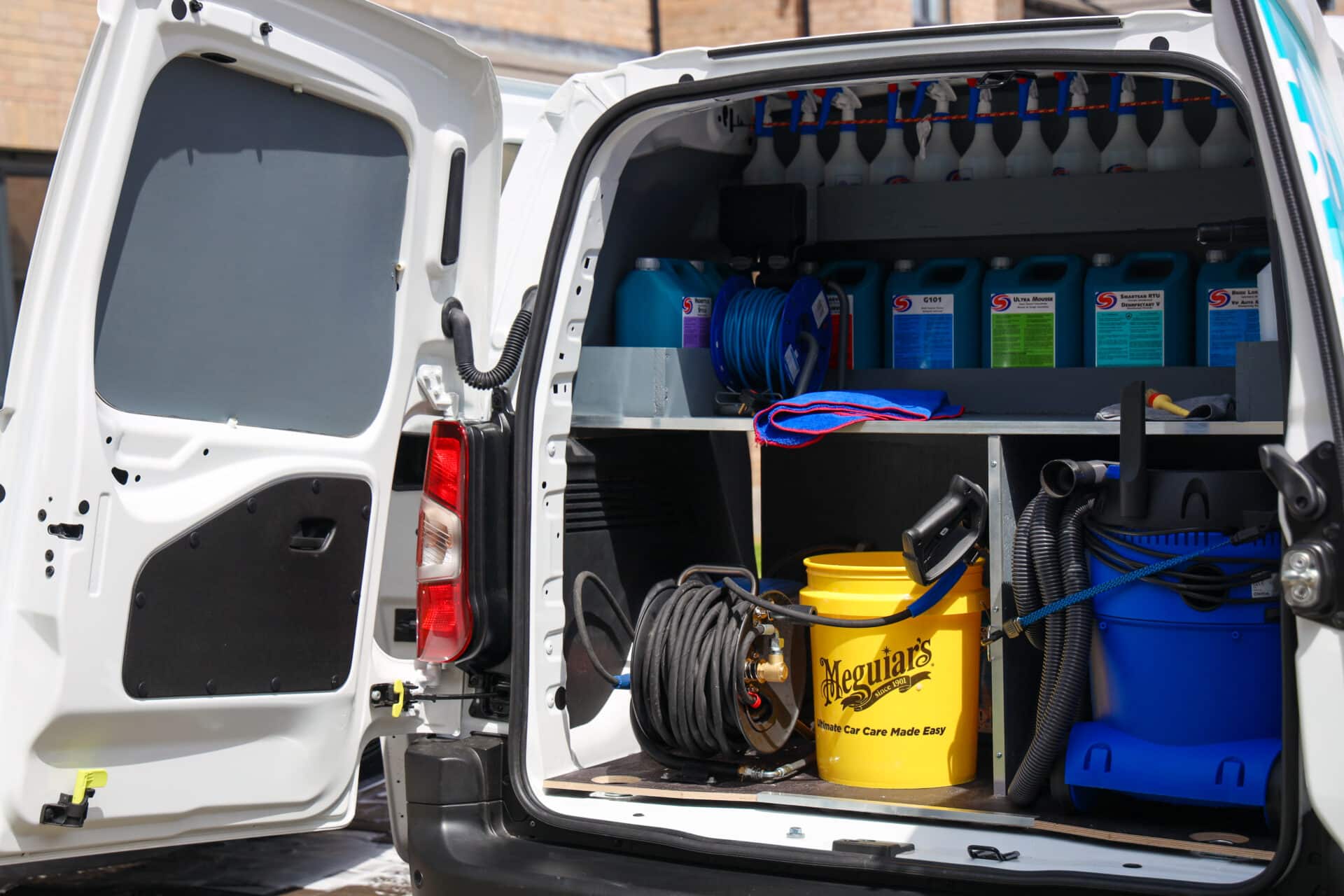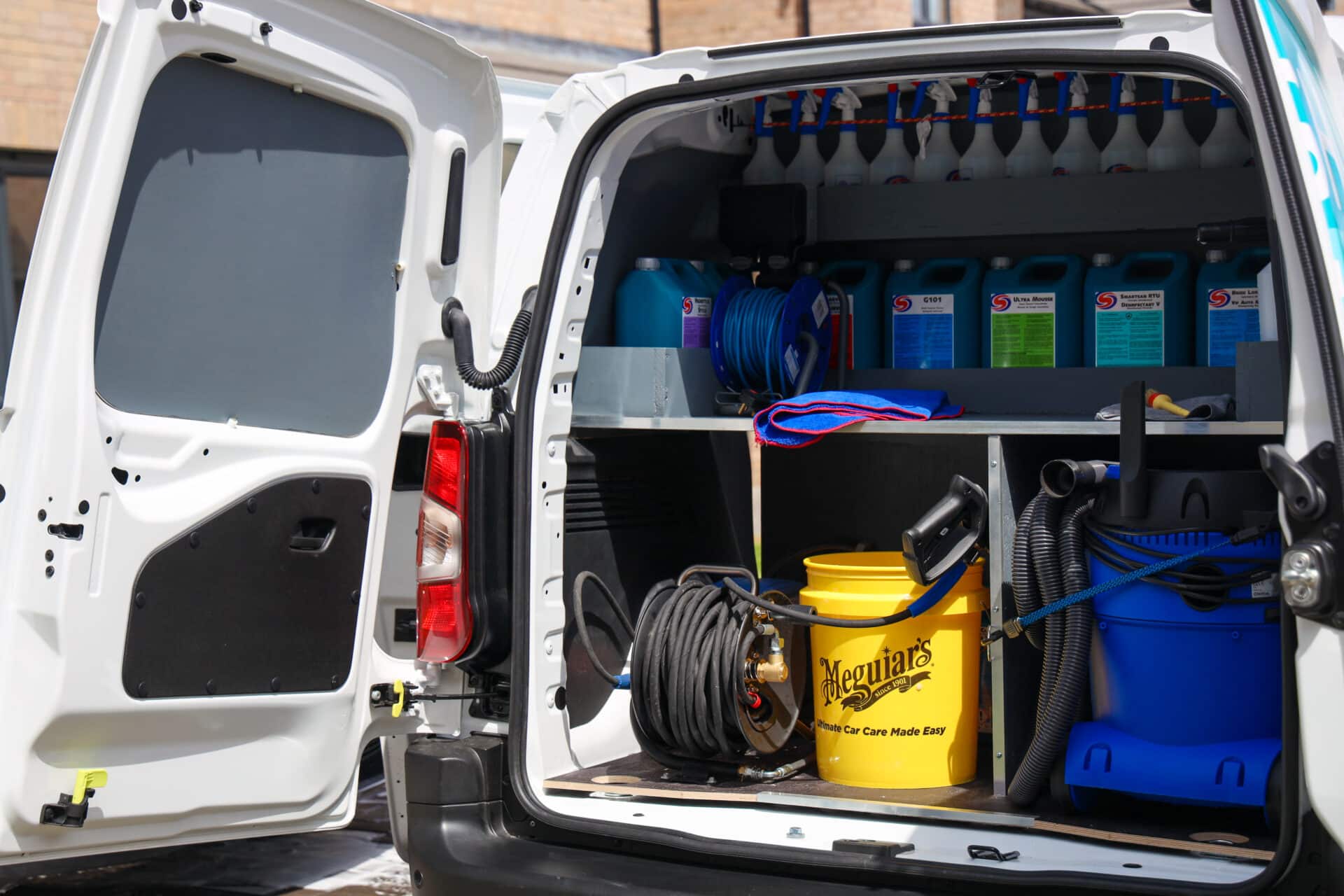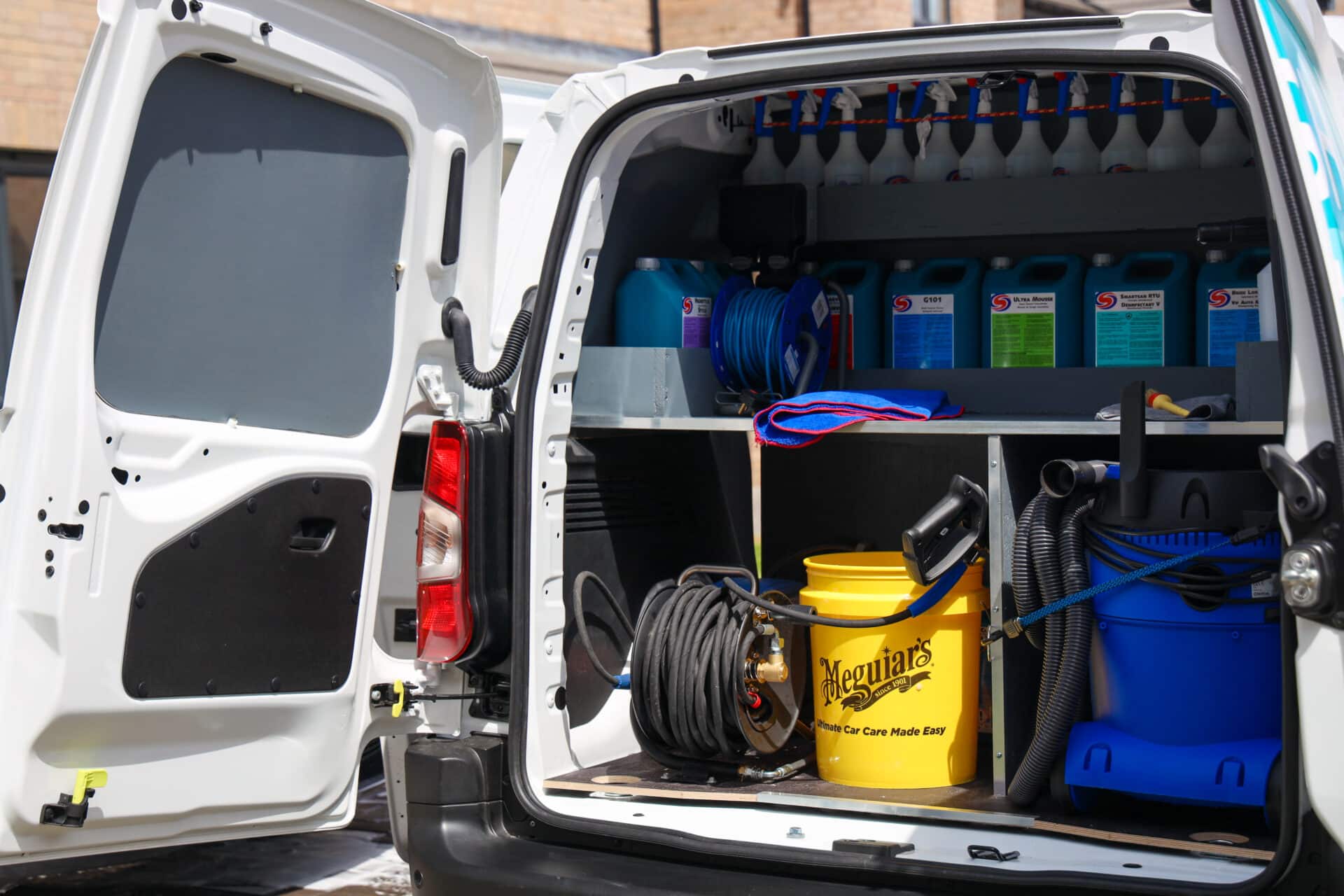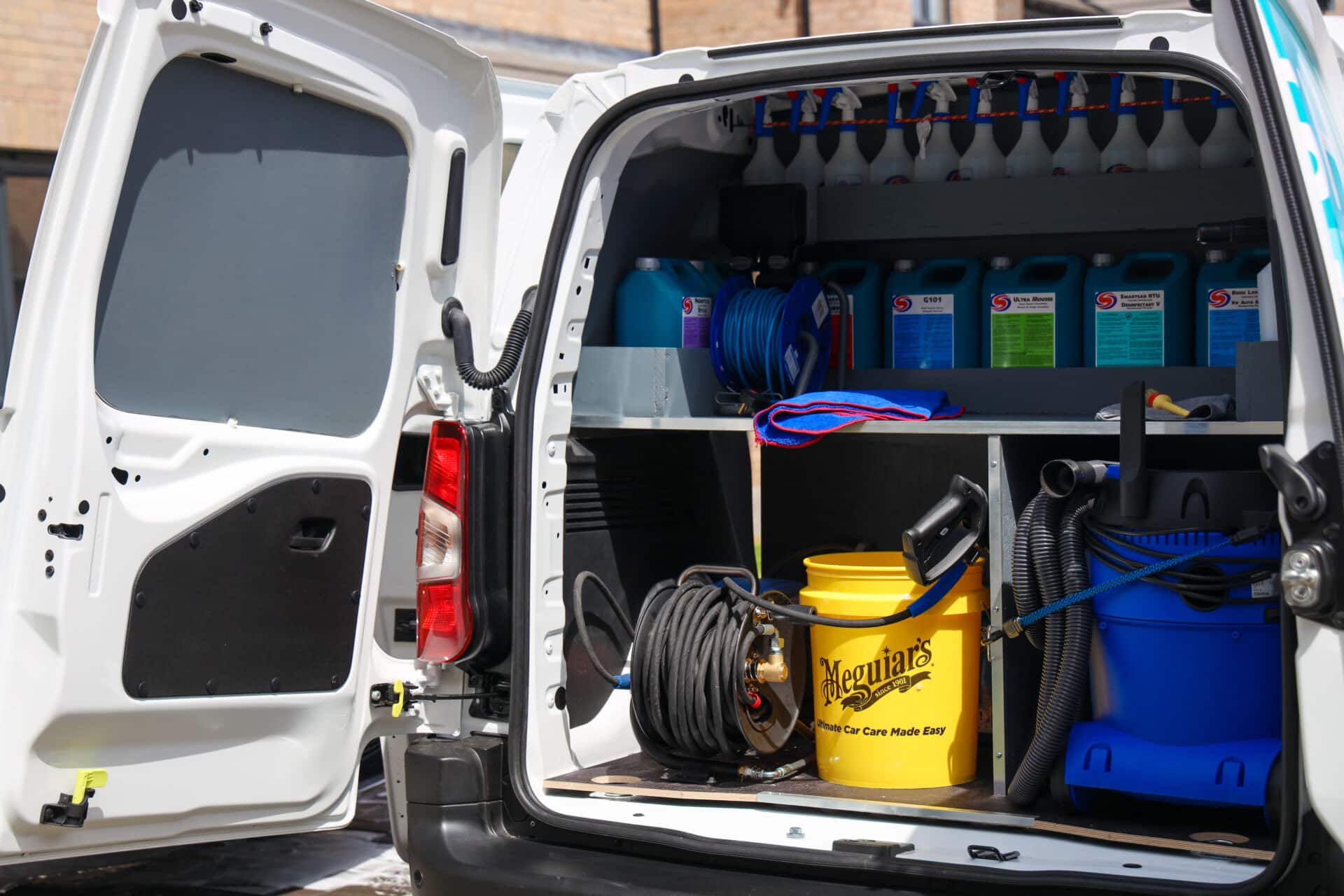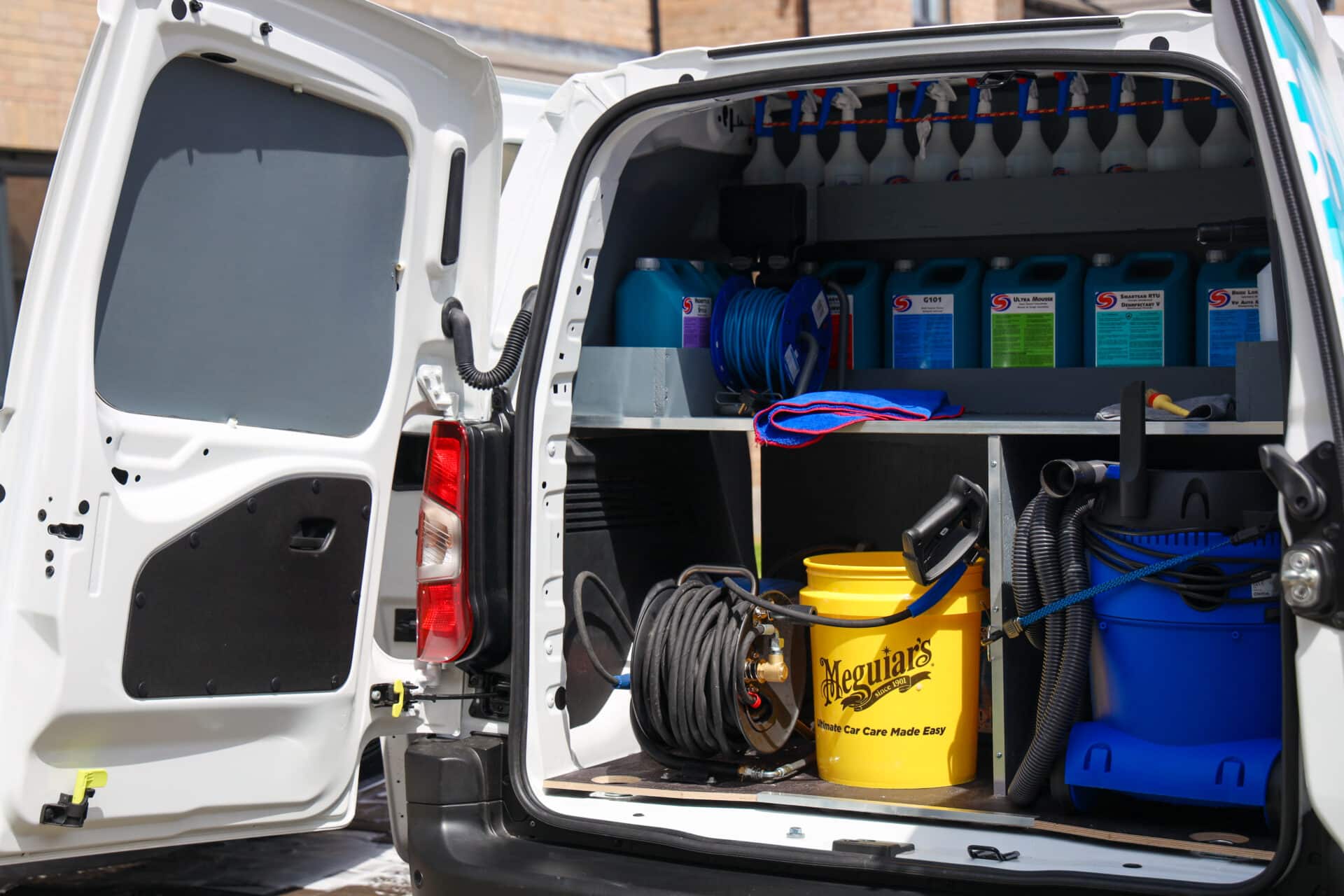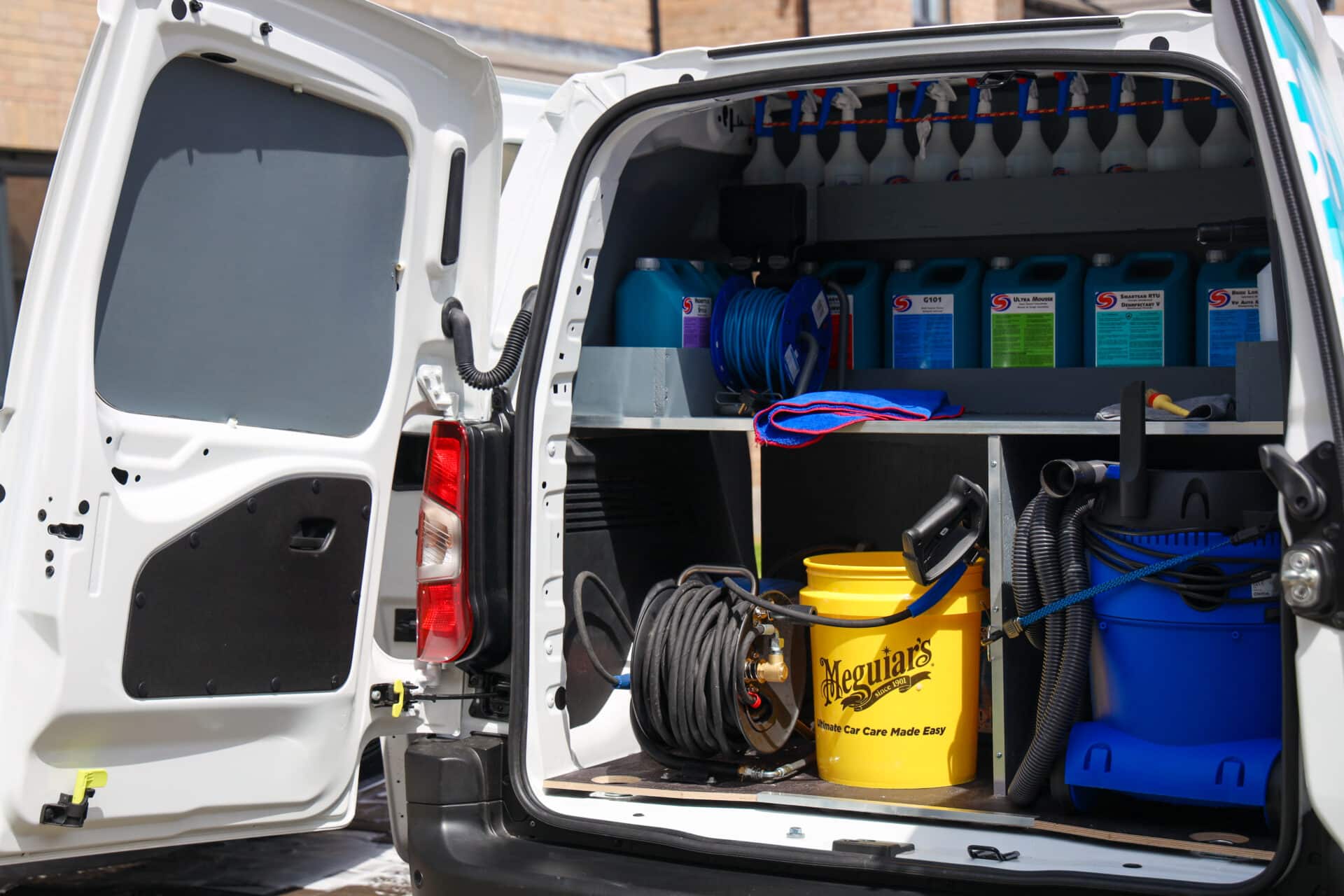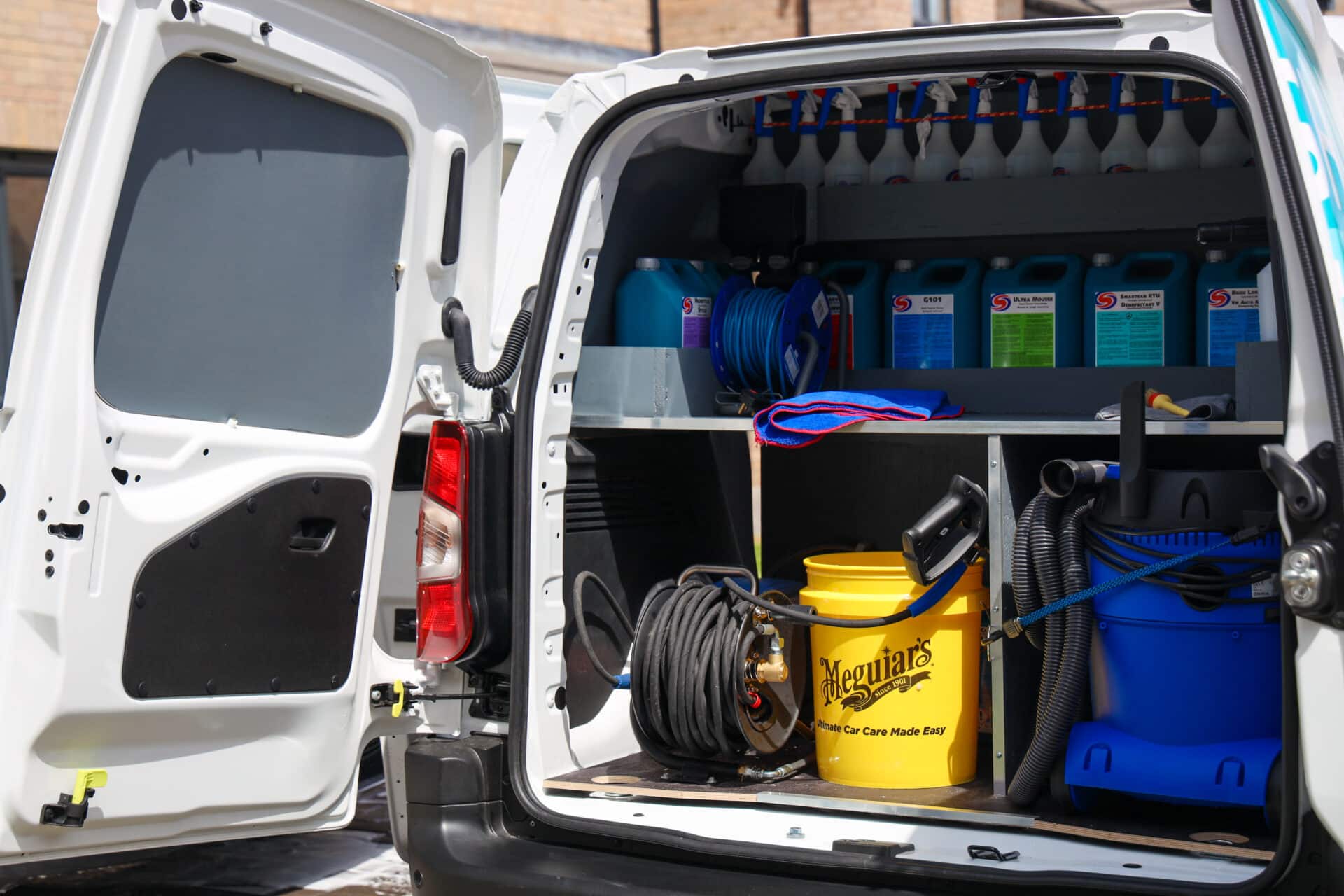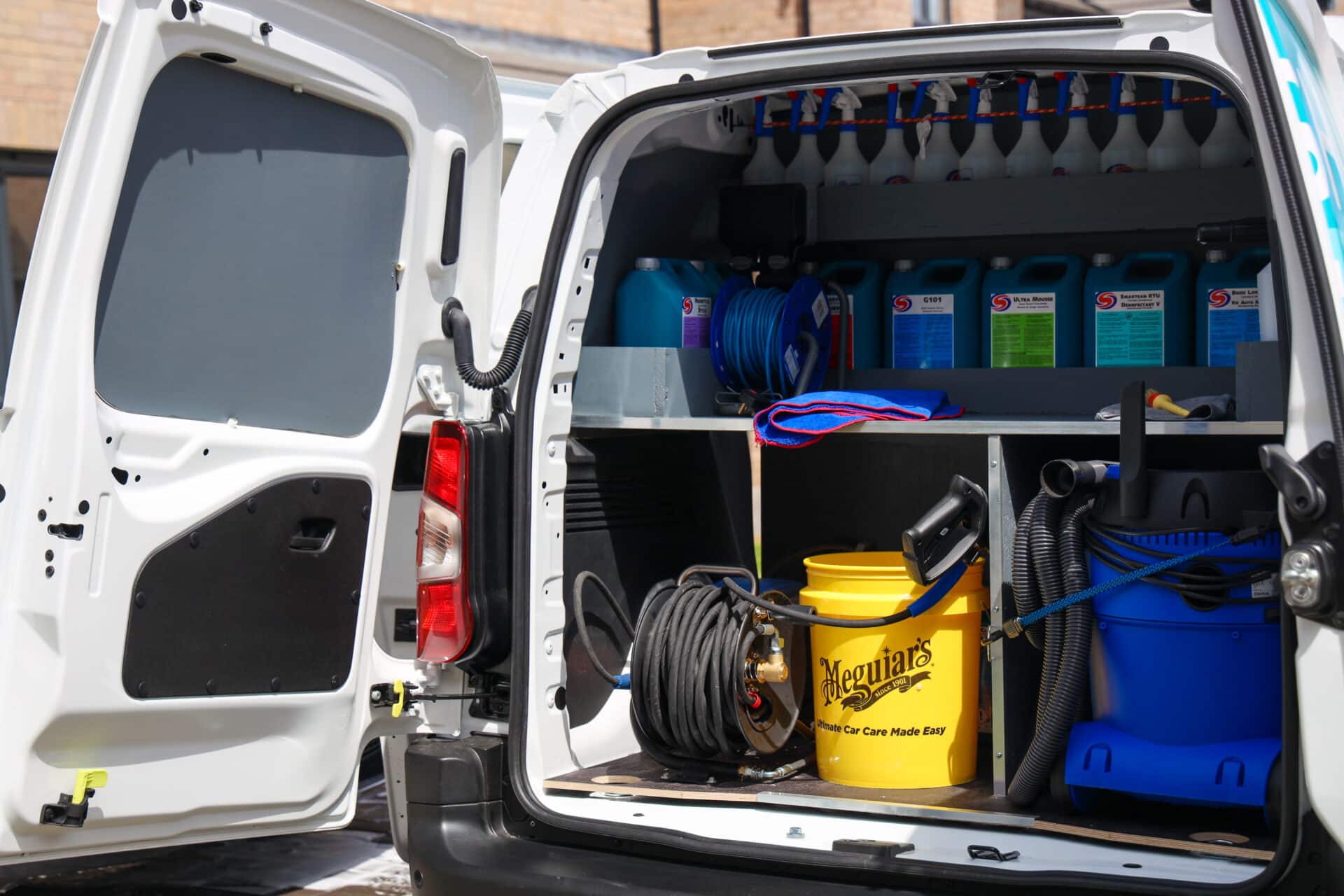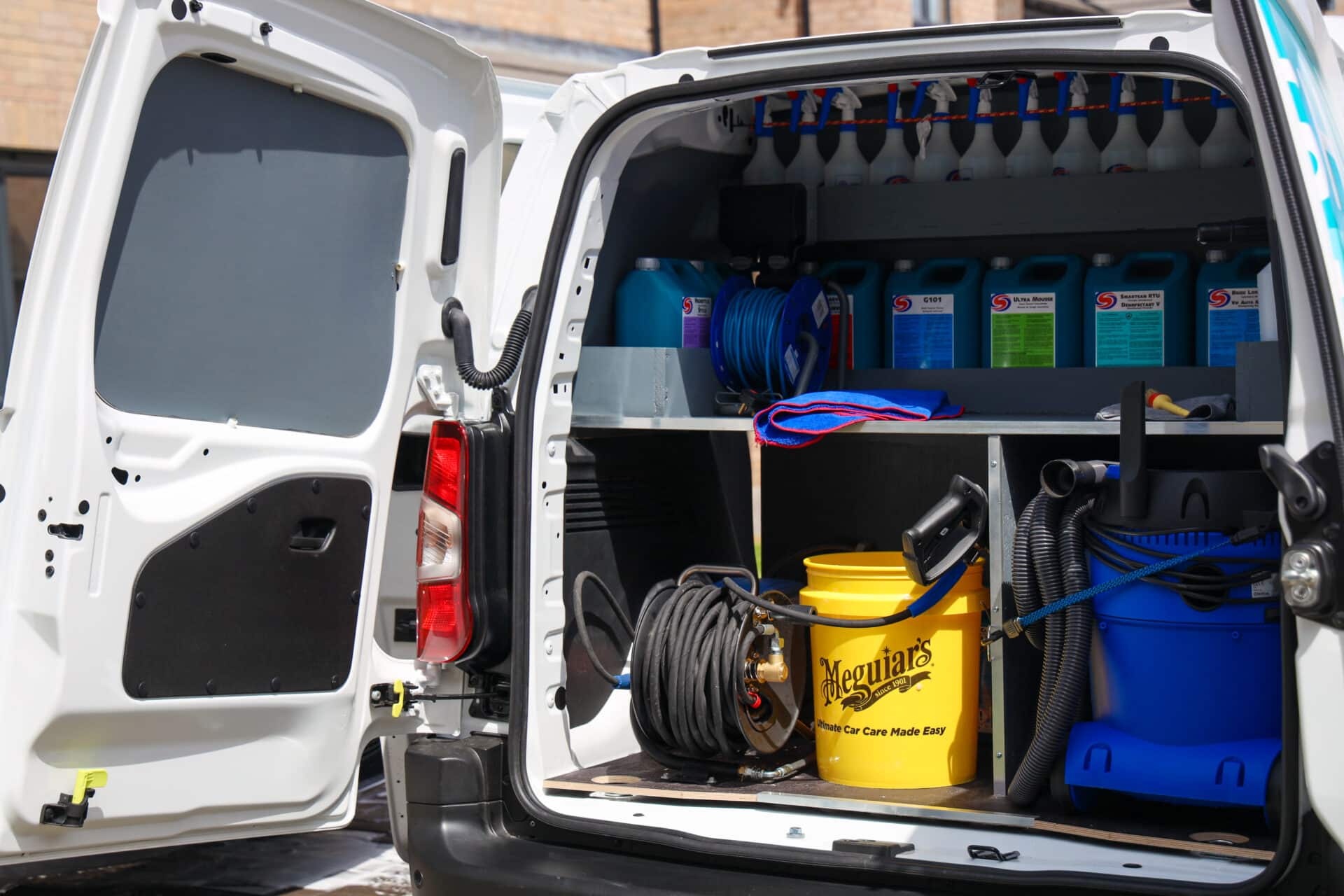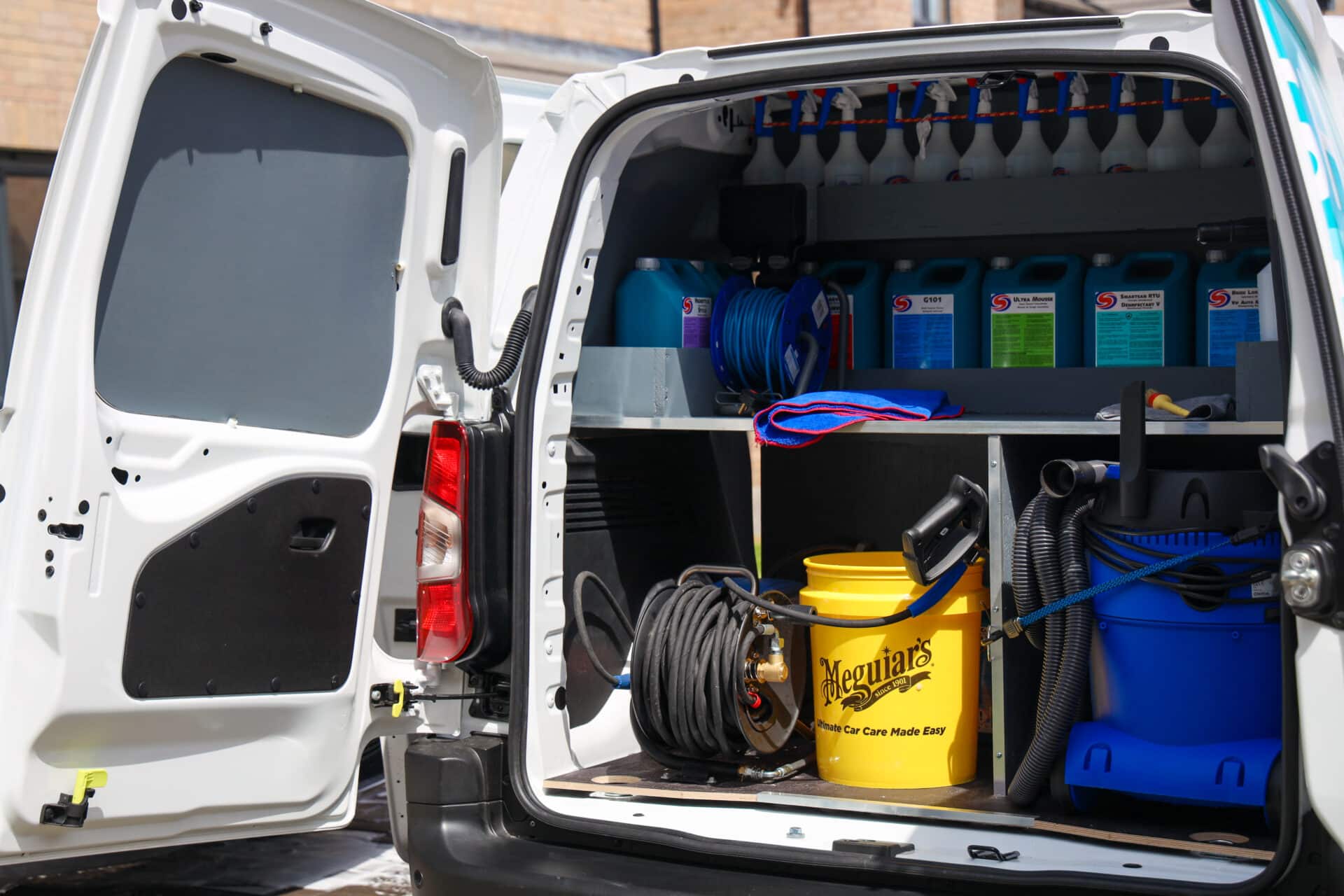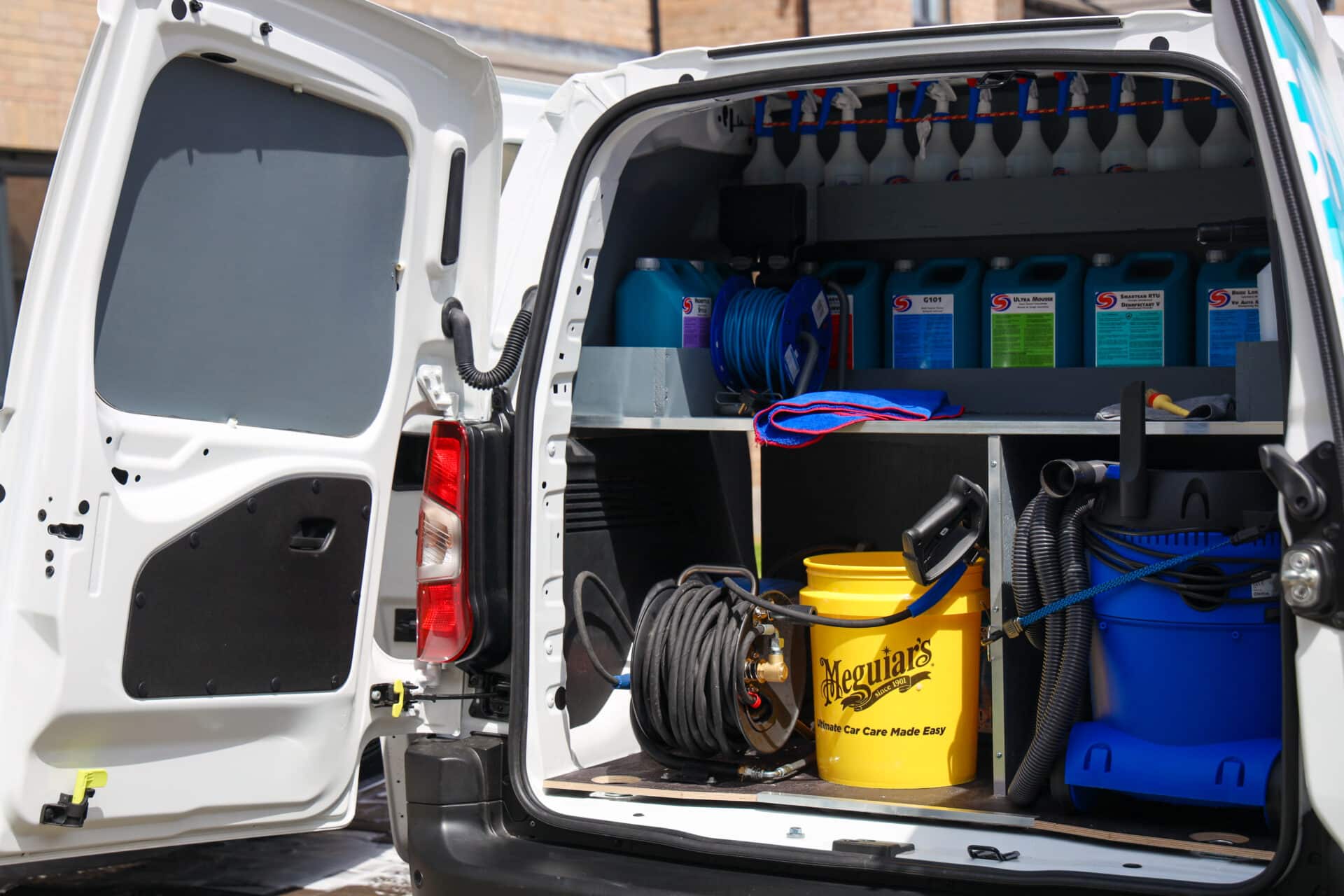Car valeting services have become increasingly popular across the UK, with mobile car valet businesses offering convenient on…
Car Valet Partnership Insurance: Essential Protection for Collaborative Valet Services
Introduction
Car valet partnerships have become increasingly popular in the UK as entrepreneurs combine resources, skills, and customer bases to create thriving mobile car cleaning businesses. Whether you're operating a franchise partnership, sharing equipment and premises, or collaborating on large commercial contracts, partnership arrangements in the valet industry present unique risks that standard individual policies may not adequately cover.
Car valet partnership insurance provides specialized protection designed specifically for businesses operating under partnership structures, ensuring comprehensive coverage for shared liabilities, joint operations, and collaborative service delivery. This essential insurance addresses the complex risk landscape that emerges when multiple parties work together in the competitive car valeting sector.
Understanding Car Valet Partnership Insurance
Car valet partnership insurance is a specialized commercial insurance product that protects businesses operating valet services through partnership arrangements. Unlike standard sole trader policies, partnership insurance recognizes the shared nature of business operations, joint liability exposure, and collaborative decision-making inherent in partnership structures.
This insurance typically covers multiple partners under a single policy, providing protection for shared business premises, jointly owned equipment, collaborative service delivery, and the unique liability exposures that arise when partners work together to serve customers. The coverage extends beyond individual protection to encompass the partnership entity itself.
Modern car valet partnerships often involve complex arrangements including profit-sharing agreements, joint marketing initiatives, shared customer databases, collaborative equipment purchases, and coordinated service territories. Each of these arrangements creates specific insurance requirements that partnership policies are designed to address.
Key Coverage Areas
Public Liability Protection
Partnership valet operations face amplified public liability risks due to multiple operators working across various locations. Coverage includes protection against customer property damage, slip and fall incidents at service locations, chemical spillage affecting third-party property, and damage to vehicles in partner care. The policy typically provides coverage limits ranging from £1 million to £10 million, with legal defense costs included.
Employers Liability Coverage
When partnerships employ staff, employers liability becomes crucial. This covers injury claims from employees working across different partnership locations, occupational health issues from chemical exposure, accidents involving shared equipment, and liability for temporary or contract workers. Coverage extends to all partners as joint employers, ensuring comprehensive protection regardless of which partner directly manages specific employees.
Professional Indemnity Insurance
Partnership valet services face professional indemnity risks related to service quality disputes, failure to meet contracted service standards, damage caused by inadequate cleaning techniques, and disputes over service specifications. This coverage protects against claims alleging professional negligence, inadequate service delivery, or failure to meet industry standards across all partnership operations.
Product Liability Coverage
When partnerships use or sell cleaning products, waxes, or protective coatings, product liability coverage becomes essential. This protects against claims arising from allergic reactions to products used, damage caused by defective cleaning chemicals, environmental contamination from product spillage, and third-party injuries from product-related incidents.
Business Interruption Protection
Partnership operations can be disrupted by various factors affecting one or more partners. Coverage includes loss of income following insured property damage, additional expenses to maintain operations during disruption, loss of key partnership contracts due to covered events, and costs associated with temporary relocation of partnership operations.
Equipment and Tool Coverage
Partnerships typically invest significantly in shared equipment requiring specialized protection. Coverage includes theft of pressure washers and cleaning equipment, damage to mobile units and trailers, breakdown of expensive machinery, and replacement costs for specialized tools. The policy can cover equipment owned jointly by the partnership or individually by partners but used in partnership operations.
Partnership-Specific Risks and Considerations
Joint and Several Liability
One of the most significant risks in valet partnerships is joint and several liability, where each partner can be held fully responsible for the actions of other partners. This means if one partner causes significant damage or faces a major claim, all partners may be liable for the full amount. Partnership insurance addresses this by providing coverage that protects all partners against claims arising from partnership activities.
Dissolution and Withdrawal Protection
Partnership changes, including partner withdrawal or business dissolution, create unique insurance challenges. Policies can include coverage for ongoing liability after partnership changes, protection during transition periods, coverage for disputes arising from partnership dissolution, and continuation options for remaining partners.
Territory and Jurisdiction Issues
When partnerships operate across different regions or have partners based in various locations, territorial coverage becomes complex. Insurance must address operations in multiple locations, travel between partnership territories, coverage for partners working outside their usual area, and compliance with local authority requirements across different jurisdictions.
Shared Customer Database Protection
Modern valet partnerships often maintain shared customer databases creating data protection liabilities. Coverage includes protection against data breaches affecting customer information, cyber liability for online booking systems, privacy violation claims, and regulatory fines related to data protection failures.
Financial Protection and Business Continuity
Partnership Debt and Credit Protection
Partnerships face unique financial risks when partners share financial obligations. Insurance can include coverage for bad debts from major commercial contracts, protection against partner default on shared financial commitments, coverage for partnership banking and credit issues, and protection during financial disputes between partners.
Contract Performance Guarantees
Large commercial contracts often require performance guarantees that partnerships may struggle to provide individually. Insurance can support contract bonding requirements, provide financial backing for performance guarantees, cover penalties for contract non-performance, and protect against losses from contract cancellation.
Seasonal Business Protection
Car valet partnerships often experience seasonal fluctuations requiring specialized financial protection. Coverage can include protection during low-demand periods, coverage for weather-related business interruption, support for seasonal staff adjustments, and protection for seasonal equipment storage.
Regulatory Compliance and Legal Protection
Environmental Liability Coverage
Valet partnerships face increasing environmental regulations requiring specialized coverage. This includes protection against water pollution from runoff, soil contamination from chemical spillage, air quality violations from equipment emissions, and regulatory fines for environmental breaches. Coverage extends to cleanup costs and third-party environmental damage claims.
Health and Safety Compliance
Partnerships must maintain health and safety standards across all operations, creating complex compliance requirements. Insurance supports regulatory compliance costs, covers fines for health and safety breaches, provides legal defense for regulatory investigations, and includes coverage for improvement notices and enforcement actions.
Employment Law Protection
When partnerships employ staff, employment law compliance becomes crucial. Coverage includes protection against unfair dismissal claims, discrimination and harassment allegations, wage and hour disputes, and regulatory employment investigations. The policy can cover legal costs and compensation awards across all partnership employment matters.
Claims Management and Support Services
24/7 Claims Reporting
Partnership operations often work extended hours requiring round-the-clock claims support. Insurers typically provide 24/7 claims reporting hotlines, emergency response coordination, immediate incident management support, and rapid assessment of partnership claims to minimize business disruption.
Legal Support Services
Complex partnership structures require specialized legal support during claims. This includes access to partnership law specialists, commercial litigation support, contract dispute resolution, and regulatory compliance advice. Many policies include legal helplines providing immediate guidance on partnership-related legal issues.
Risk Management Support
Insurers often provide proactive risk management services including partnership agreement reviews, health and safety assessments, environmental compliance audits, and staff training programs. These services help partnerships identify and mitigate risks before they result in claims.
Choosing the Right Partnership Insurance
Policy Structure Options
Partnership insurance can be structured in various ways depending on business needs. Options include single partnership policies covering all partners, individual policies with partnership extensions, umbrella policies providing additional coverage layers, and modular policies allowing customization of coverage elements.
Coverage Limits and Deductibles
Determining appropriate coverage limits requires careful assessment of partnership risks. Factors include the size and scope of partnership operations, value of shared assets and equipment, potential liability exposure from partnership activities, and financial capacity of the partnership to handle deductibles and uninsured losses.
Premium Factors and Cost Considerations
Partnership insurance premiums depend on various factors including the number of partners and their experience levels, scope and location of partnership operations, claims history of all partners, types of services provided by the partnership, and risk management measures implemented by the partnership.
Industry Trends and Future Considerations
Technology Integration
Modern valet partnerships increasingly rely on technology requiring updated insurance coverage. This includes protection for mobile apps and booking systems, coverage for GPS tracking and fleet management systems, cyber liability for digital payment processing, and protection for customer relationship management systems.
Sustainability and Environmental Focus
Growing environmental awareness affects partnership insurance needs. Coverage considerations include protection for eco-friendly cleaning products and methods, liability for environmental claims and green certifications, coverage for renewable energy systems and water recycling equipment, and protection against greenwashing allegations.
Franchise and Licensing Arrangements
Many valet partnerships operate under franchise or licensing agreements requiring specialized coverage. This includes protection for franchise agreement compliance, coverage for territorial and exclusivity disputes, liability for franchise system failures, and protection for licensing fee and royalty obligations.
Frequently Asked Questions
What happens if one partner leaves the business?
Most partnership policies include provisions for partner changes, allowing coverage to continue for remaining partners while providing options for departing partners to maintain individual coverage. The policy typically includes a notice period for changes and may offer pro-rata premium adjustments.
Are partners covered when working independently?
Coverage depends on policy terms, but most partnership policies provide protection when partners work independently on partnership business. However, purely personal work outside the partnership scope may not be covered, requiring separate individual policies.
How are claims handled when multiple partners are involved?
Claims involving multiple partners are typically managed through a single point of contact, with the insurer coordinating defense and settlement across all involved parties. The policy usually includes provisions for joint legal representation and shared decision-making on claim resolution.
Can partnerships add new coverage types during the policy term?
Most insurers allow mid-term policy adjustments to add coverage types or increase limits, subject to underwriting approval and premium adjustments. This flexibility is particularly important for growing partnerships expanding their service offerings.
What documentation is required for partnership insurance?
Typical requirements include partnership agreements or articles of incorporation, details of all partners and their roles, business registration and licensing documentation, financial statements and business plans, details of premises and equipment, and claims history for all partners.
How does partnership insurance differ from sole trader coverage?
Partnership insurance provides broader coverage for shared liabilities, joint operations, and collaborative risks that sole trader policies don't address. It also includes provisions for partnership-specific issues like joint and several liability, partner changes, and shared asset protection.
Are subcontractors covered under partnership policies?
Coverage for subcontractors depends on policy terms and the nature of the subcontracting arrangement. Some policies automatically include subcontractor coverage, while others require specific endorsements or separate subcontractor insurance.
What happens during partnership disputes?
Most policies include provisions for coverage continuation during partnership disputes, though certain exclusions may apply for claims arising directly from partnership disagreements. Legal expense coverage may help resolve disputes before they affect insurance coverage.
Conclusion
Car valet partnership insurance provides essential protection for collaborative valet businesses, addressing the unique risks and complex liability exposures inherent in partnership operations. From joint liability protection to coverage for shared assets and collaborative service delivery, comprehensive partnership insurance ensures business continuity and financial security.
The evolving nature of valet partnerships, with increasing technology integration, environmental focus, and complex commercial arrangements, makes specialized insurance coverage more important than ever. By understanding the specific risks facing partnership operations and selecting appropriate coverage, valet partnerships can protect their collaborative investments while focusing on business growth and customer service excellence.
Working with experienced commercial insurance brokers who understand the valet industry and partnership structures ensures access to competitive coverage options tailored to specific business needs. Regular policy reviews and risk assessments help partnerships maintain adequate protection as their operations evolve and expand.
For car valet partnerships seeking comprehensive insurance protection, professional guidance from specialist brokers provides access to the most suitable coverage options, competitive premiums, and ongoing support for risk management and claims handling. Contact Insure24 at 0330 127 2333 to discuss your partnership insurance requirements and secure the protection your collaborative valet business needs.


 0330 127 2333
0330 127 2333
